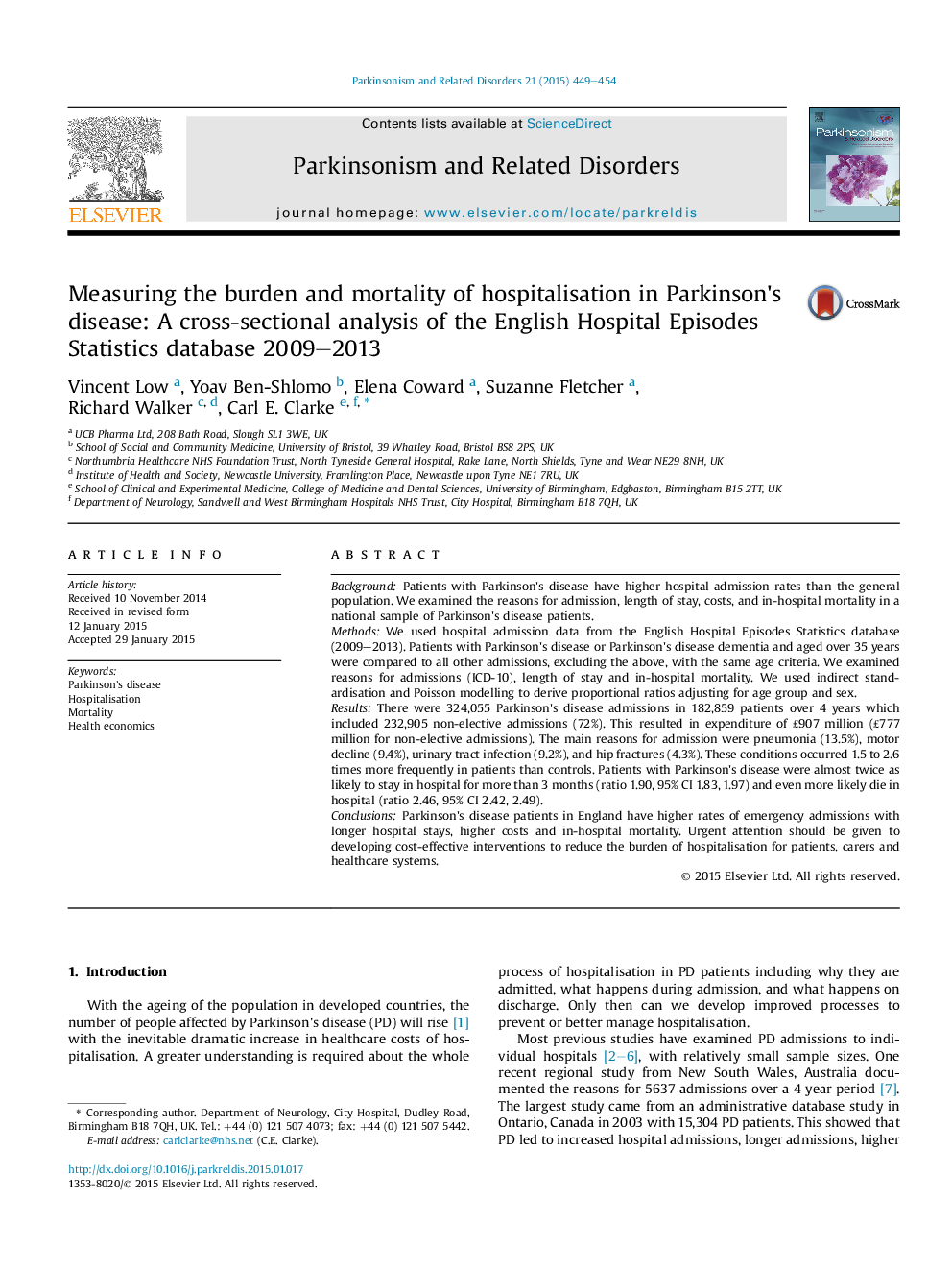| Article ID | Journal | Published Year | Pages | File Type |
|---|---|---|---|---|
| 1920426 | Parkinsonism & Related Disorders | 2015 | 6 Pages |
•We examined hospitalisation in Parkinson's disease using English Hospital Episodes Statistics.•There were 324,055 Parkinson's disease admissions in 182,859 patients over 4 years.•This included 232,905 non-elective admissions which cost £777 million.•Pneumonia, urinary tract infection and hip fracture occurred 1.5–2.6 times more in patients than controls.•Patients were twice as likely to stay in hospital over 3 months and even more likely die in hospital.
BackgroundPatients with Parkinson's disease have higher hospital admission rates than the general population. We examined the reasons for admission, length of stay, costs, and in-hospital mortality in a national sample of Parkinson's disease patients.MethodsWe used hospital admission data from the English Hospital Episodes Statistics database (2009–2013). Patients with Parkinson's disease or Parkinson's disease dementia and aged over 35 years were compared to all other admissions, excluding the above, with the same age criteria. We examined reasons for admissions (ICD-10), length of stay and in-hospital mortality. We used indirect standardisation and Poisson modelling to derive proportional ratios adjusting for age group and sex.ResultsThere were 324,055 Parkinson's disease admissions in 182,859 patients over 4 years which included 232,905 non-elective admissions (72%). This resulted in expenditure of £907 million (£777 million for non-elective admissions). The main reasons for admission were pneumonia (13.5%), motor decline (9.4%), urinary tract infection (9.2%), and hip fractures (4.3%). These conditions occurred 1.5 to 2.6 times more frequently in patients than controls. Patients with Parkinson's disease were almost twice as likely to stay in hospital for more than 3 months (ratio 1.90, 95% CI 1.83, 1.97) and even more likely die in hospital (ratio 2.46, 95% CI 2.42, 2.49).ConclusionsParkinson's disease patients in England have higher rates of emergency admissions with longer hospital stays, higher costs and in-hospital mortality. Urgent attention should be given to developing cost-effective interventions to reduce the burden of hospitalisation for patients, carers and healthcare systems.
